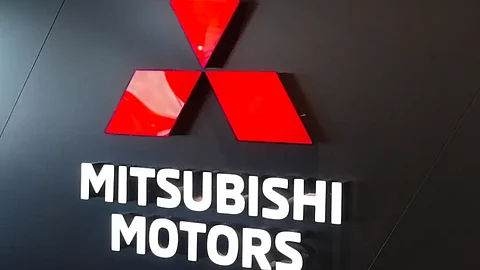
- NEWS
- the EDIT
- COMMENTARY
- BUSINESS
- LIFE
- SHOW
- ACTION
- GLOBAL GOALS
- SNAPS
- DYARYO TIRADA
- MORE

Japanese car manufacturing giant Mitsubishi Motors (Philippines) Corp. (MMPC) will observe the adverse effects of the United States’ zero percent tariff concession to the Philippines, noting that it’s too early to assess whether it will impact their operations in the country.
Last month, the Philippine and US governments agreed that US exports, including automobiles, will enter the country’s market tariff-free, while exports to the US will continue to face a 19 percent tariff, slightly reduced from the previously threatened 20 percent.
“Well, it’s just been announced, so it’s pretty early to say without observation. Well, seeing it right now, what kind of product do we have from US imports at this moment? It’s pretty limited. For instance, in the US, the most famous brand is Ford. They are (basically) coming from Thailand,” said Ritsu Imaeda, president and CEO of MMPC, in a press conference during the launch of the joint venture of MMPC and Security Bank Corp., dubbed Mitsubishi Motors Finance Philippines Inc. (MMFP), last Friday at the Makati Shangri-La.
Indirect car importation
Imaeda said US cars are not directly imported from the US to the Philippines, but from other Asian countries, such as Thailand and Japan.
“The other things we could think about are, for instance, importation from Japan, the Japanese products to the Philippines. Maybe, like Toyota, it might be possible to import the cars from the US for production… as a possibility,” he said.
“But I think that would take time because the regulations are not prepared to produce those Philippine market models over there. So, just like an overall observation, I think it’s not going to impact in a short time that much or that significantly. This is what we are thinking now, but we are still going to investigate all the possibilities of how it could impact the market itself,” Imaeda explained.
Meanwhile, Security Bank Corp. president and CEO, Sanjiv Vohra, expressed optimism that the entry of the US brands will not hurt the current healthy growth of the automobile industry.
“From a financial and auto loan entity, what is important is the overall growth of automobiles in the country, and I think that has been growing well. The growth rate year-on-year, I think, was 15 percent,” he said.
He added Japanese car brands dominate the local market.
“If you look at the market share of the different car brands in the country, I think the Japanese brands have over 70 percent market share. Talking about competing brands from other countries, they are not particularly coming from the US, and they may be enjoying preferential tariff treatments as well,” he stressed.
Vohra said that the joint venture will allow both partners to counter the impacts of tariffs through the financing options.
